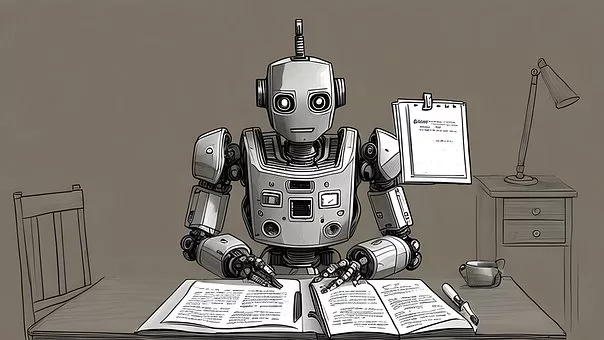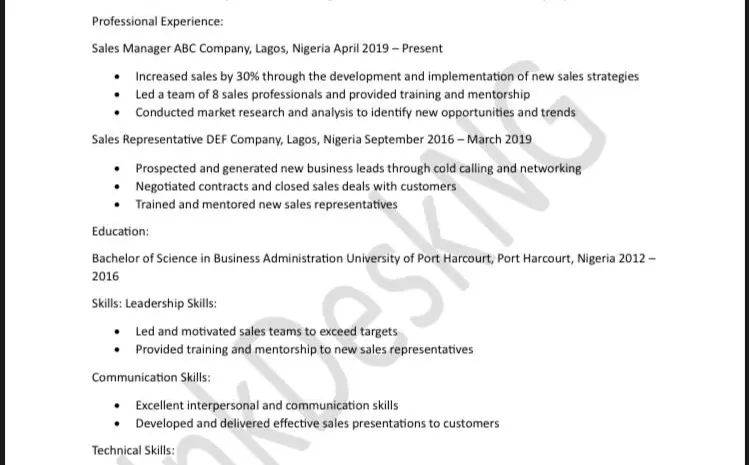As you start your job search, one of the most critical tools in your arsenal is your resume and cover letter. These documents are your first impression and can make or break your chances of getting an interview.
However, many job seekers make common mistakes that can hurt their chances of landing their dream job. In this article, we will explore some of these mistakes and provide tips on how to avoid them.

1. Using Generic Resumes and Cover Letters
One of the most common mistakes job seekers make is using generic resumes and cover letters. Sending out the same resume and cover letter to multiple job applications may seem efficient, but it can backfire.
This is because hiring managers can quickly spot generic resumes and cover letters, and they may interpret it as a lack of effort and genuine interest in the position.
Here is an effective solution to this mistake:
- Tailor your resume and cover letter for each job application.
- Research the job description, company, and industry to identify keywords and specific requirements.
- Then, highlight your relevant skills, experiences, and achievements that align with the job you are applying for.
Doing these will indicate to the hiring manager that you have taken the time to understand the position and are genuinely interested in it.
Imagine you are applying for a marketing position in a digital advertising agency. Instead of using a generic resume that lists your general marketing skills, you could customize it by emphasizing your experience in digital marketing, such as managing Google Ads campaigns, creating social media content, and analyzing website traffic.
In your cover letter, you could mention specific campaigns or projects you have worked on that align with the agency’s focus on digital advertising.
2. Using Too Long or Too Short Resumes
Another common mistake is having resumes that are either too long or too short. A lengthy resume can be overwhelming for the hiring manager and may result in your key qualifications getting lost in the details.
On the other hand, a resume that is too short may not provide enough information to showcase your skills and experiences adequately.
Here is a proven solution to this error:
- Aim for a resume that is concise yet comprehensive.
- Keep it to one or two pages and use bullet points to highlight your achievements and responsibilities.
- Use a clean and easy-to-read font, and organize your resume with clear headings and sections.
- Focus on relevant experiences and achievements that are directly related to the job you are applying for.
Let’s say you are applying for a project manager position. Instead of listing every project you have ever worked on, focus on the most relevant ones that demonstrate your skills and accomplishments, such as completing a project ahead of schedule, achieving cost savings, or leading a successful team.
Be specific and quantify your achievements whenever possible to showcase your impact.
3. Ignoring Keywords and Applicant Tracking Systems (ATS)
Many companies use applicant tracking systems (ATS) to screen resumes before they are reviewed by human hiring managers. These systems scan resumes for specific keywords and phrases related to the job description.
If your resume lacks these keywords, it may be filtered out and never reach the human eye.
Solution:
Carefully review the job description and incorporate relevant keywords and phrases in your resume. These keywords can include specific skills, software, certifications, and industry jargon.
However, avoid keyword stuffing, as it can make your resume or cover letter appear inauthentic. Make sure your resume flows naturally while focusing on showcasing your relevant qualifications.
For example, if you are applying for a software developer position, make sure to include keywords such as programming languages (e.g., Java, Python), frameworks (e.g., React, Angular), and tools (e.g., Git, Jira) that are mentioned in the job description.
This will increase the chances of your resume passing through the ATS and reaching the hiring manager’s desk. Make sure you also learn about how to optimize your CV for applicant tracking system (ATS).
4. Neglecting Proofreading and Grammar Errors
Nothing is more detrimental to a resume and cover letter than obvious proofreading and grammar errors. These mistakes can create a negative impression and convey a lack of attention to detail, which is a crucial skill in many job roles.
Always proofread your resume and cover letter carefully, and use grammar and spell-check tools like Grammarly or Prowriting Aid to catch any errors.
Read your documents multiple times and have someone else review them as well to ensure they are error-free. It is important to pay attention to formatting, grammar, punctuation, and consistency in language usage.
Imagine you are applying for a job as a content writer. If your resume or cover letter contains errors such as misspelled words, incorrect verb tenses, or inconsistent capitalization, it can reflect poorly on your writing skills and attention to detail.
In this regard, make sure to thoroughly review and edit your documents to avoid these mistakes and present a polished and professional image.
5. Lack of Personalization in Cover Letters
Your cover letter is an opportunity to showcase your personality and explain why you are a perfect fit for the company and role. However, many job seekers make the mistake of using generic and impersonal cover letters that do not stand out.
Solution:
- Personalize your cover letter by addressing it to the hiring manager by name, if possible.
- Research the company and demonstrate your knowledge and genuine interest in the organization.
- Explain why you are interested in the role and how your skills and experiences align with the company’s values and goals.
- Avoid using generic statements and, instead, focus on being specific and authentic.
For instance, instead of using a generic opening like “To Whom It May Concern,” address your cover letter to the hiring manager by their name, such as “Dear Mr. Smith.”
In your introduction, mention something specific about the company, such as recent achievements, their mission statement, or a project that resonates with you. This shows that you have taken the time to research the company and are genuinely interested in working for them.
By putting in the effort to create polished and customized documents, you can make a positive impression and stand out from the competition. If you need help doing this, you can speak with us now.
Read Next: Tailoring Your CV To The Job Description? 5 Surefire Ways

